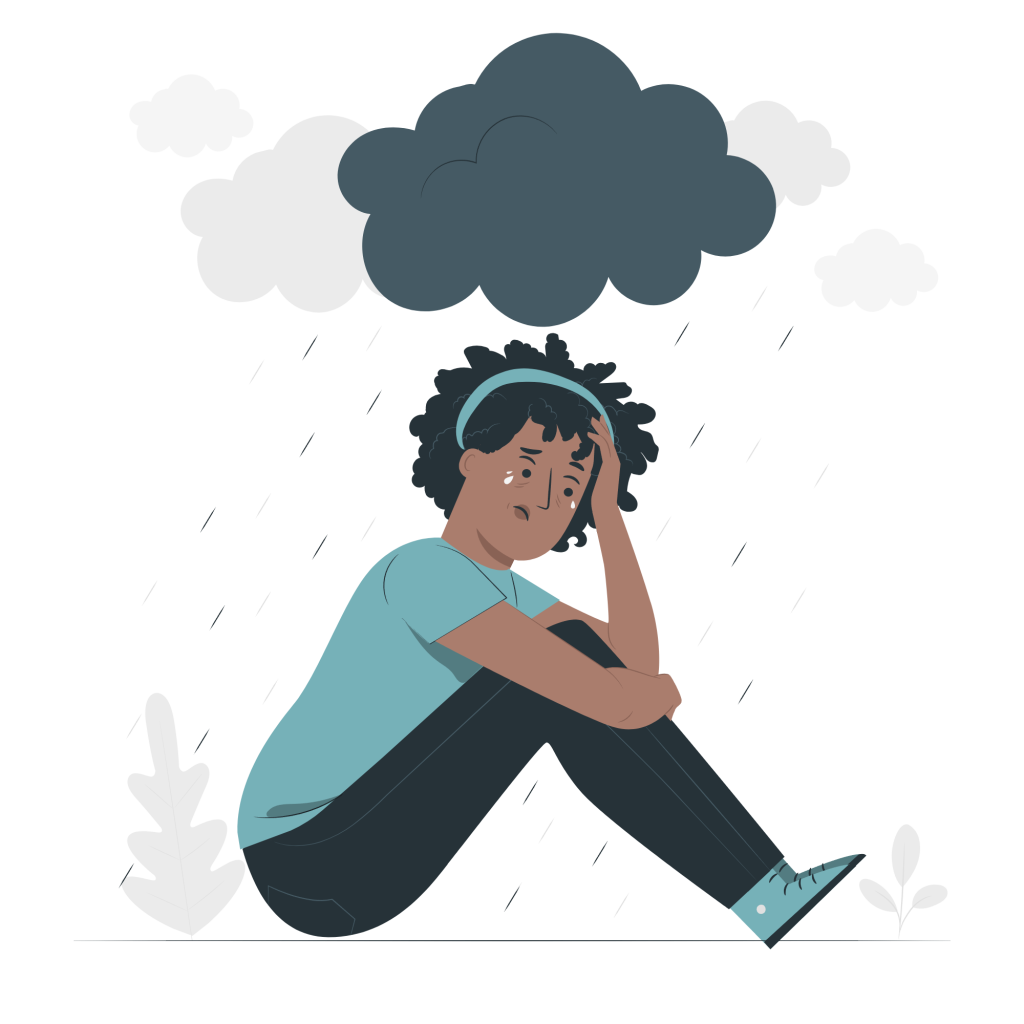Depression
Home > Depression
DEPRESSION
Depression is a common but serious mental health condition that causes a persistent feeling of sadness and low mood. It changes the way you think, eat, sleep and act. Depression is treatable with medicines and talk therapy. Depression is a mood disorder that causes a persistent feeling of sadness and loss of interest in things and activities you once enjoyed. It can also cause difficulty with memory and successful life skills.
Types of Depression
Clinical Depression (Major Depressive Disorder)
This is diagnosed when you have felt sad, worthless or low. Majority of the time in a day and it should have been experienced by you for more than two weeks or at least two weeks, along with sleep issues, such as insomnia or sleeping too much, decreased interest in activities that made you feel joy before, change in appetite (over eating or avoid eating), exhausted feeling, guilt, agitation, losing focus and concentration, suicidal thoughts or trials, etc.
Persistent Depressive Disorder (PDD)
PDD is a mild to moderate depression that have lasted for more than two years. There is also a low grade depression which is known as PDD dysthymia. Symptoms are as same as that for clinical depression.
Disruptive Mood Dysregulation Disorder (DMDD)
This problem occurs in children by the age of 10 and it cause long lasting irritability and anger outbursts.
Postpartum Depression or Prepartum Depression
Postpartum depression develops after delivering the baby and within 4 weeks. Prepartum depression happens during pregnancy. The DSM refers to these as “Major Depressive Disorder (MDD) with peripartum onset”.
Premenstrual Dysphoric Disorder (PMDD)
In PMDD, a person would have PMS–Premenstrual Syndrome along with extreme irritability, anxiety or depression. Even though, these symptoms reduce within few days after the period starts, they can impact a person’s life severely.
Seasonal Affective Disorder
This type affect people during winters and fades in summers. Due to poor sunlight, the mood and energy of a person goes down, and when you get a good sunlight, the mood starts to elevate. This is the reason for the name being seasonal affective disorders.
Depressive Disorder due to another medical condition
Medical conditions or illness can bring different changes in our bodily functions and capabilities and that causes depression.
Examples: Thyroid issues, Parkinson’s disease, Dementia, Cancer, Heart disease.
People who are affected by Bipolar Disorder also experience episodes of depression in addition to hypomanic and manic episodes.
Causes
- Stressful Life events-education, exams, new job, marriage, divorce, retirement, etc.,
- Conflicts-work life, familial
- Abuse-physical, verbal, emotional, sexual loss or death
- Chronic illness and/or some medications
- Addiction–alcoholism, drugs
Genetic reasons
Brain chemistry–due to an imbalance of neuro transmitters and variation in the levels of dopamine and serotonin depression develops.
Symptoms
- Irritability, aggression
- Negative thoughts
- Guilty feeling, worthlessness, hopelessness
- Difficulty to concentrate
- Difficulty to make decisions
- Sleeping difficulties or sleeping too much
- Suicidal ideation
- Loss of interest in activities, sports, hobbies
- Alcoholism–increased alcohol consumption
- Lack of interest in sex or sexual dysfunction
- Over eating or lack of appetite
- Low energy or fatigue
How can we help?
- Psychotherapy–CBT and Brief therapy and DBT medication
- Complimentary, alternative treatments–Acupuncture, acupressure, massage, biofeedback, hypnotherapy
- Brain stimulation therapy–Trans cranial Magnetic Stimulation (TMS) and Vagus Nerve Stimulation (VNS) yoga therapy
- Exercise–walking, jogging, stretching
